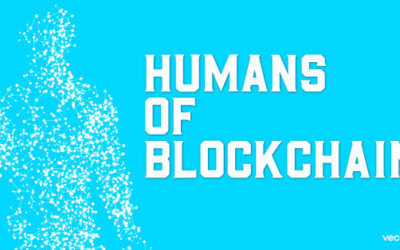On Friday, October 25th, Chinese President Xi Jinping addressed the Central Politburo of the Communist Party of China at a committee studying the trends and status of blockchain technology. He emphasized that the application of blockchain technology will play an important role in new technological innovation and industrial transformation. He informed the audience, made up of the country’s top politicians, that China must take the blockchain as an important breakthrough for independent innovation of core technologies, clarify the main direction, increase investment, focus on a number of core technologies, and accelerate the development of blockchain technology and industrial innovation.
Make no mistake, a statement like this carries a ton of authority. When China’s top brass makes a explicit statement like this, the country’s top-to-bottom leadership must move quickly to fall in line. National committees, provincial and regional governments, state-owned enterprises, and ambitious corporations will all be clamoring to demonstrate their innovative spirit. Direct speeches on new technology aren’t handed out cheaply in China, and usually affect only issues of utmost national importance, or at least ones that will have a substantial influence on the economic development of the country. This puts blockchain in a group of essential technologies such as 5G and AI that China is committed to being a global leader at.
He also stressed that China had a good foundation for blockchain technology, a nod to the existing companies and project that have been developing solutions within the existing regulation framework. Major companies like Tencent, Alibaba, China Mobile, and China Unicom have been testing and developing solutions for the last few years, along with a handful of public chains such as VeChain.
President Xi listed many examples of how blockchain could be put to good use. Included were many that could improve living conditions for Chinese citizens, such as smart cities, smart traffic solutions, and elderly care. Still, the bulk of the example use-cases sounded all too familiar for those that make a habit of following VeChain: food safety, medical treatment and health, product traceability, energy and power solutions, as well as other public solutions. Without a doubt, this is great news for every blockchain project in China, but few would argue that VeChain’s position within the country’s industrial landscape is anything but the strongest, and they should surely reap benefits from this announcement over the mid to long term.
From a short term perspective, this is clearly a green-light for companies to stop testing the waters and take blockchain solutions more serious. A ripple effect of regional policies should soon follow, reinforcing President Xi’s message. It’s often noted that a lack of clarity on a technology’s regulation can be more damaging than harsh regulations, so it will be a relief to blockchain projects everywhere to finally see a positive backing.
But instead of asking “What” perhaps the smarter question would be “Why?” While certainly blockchain technology is deserving of this outward show of positivity, it does gloss over the negatives that the technology brings, such as fraud, money laundering, and private cross-border transactions. With Mark Zuckerberg currently being dragged through congressional hearings in America, one can’t help but marvel at the timing. Comparatively, China is committed to developing new technologies that improve the lives of their citizens, while America is fixated (perhaps rightly so) on stifling Facebook and their cryptocurrency Libra.
One prominent attendee was the Chairman of China’s Standing Committee, Li Zhanshu. Li, often regarded as the third-most powerful politician in the country, is all too familiar with blockchain after visiting DNV GL’s Norwegian headquarters this summer. DNV GL has been focused on a number of solutions that improve the public welfare of the country, such as the Digital Low Carbon Ecosystem, that rewards people taking environmentally-friendly actions. Few companies will be more excited than DNV GL China, whose Business Assurance department led by VeChain Steering Committee member George Kang has a whole range of blockchain-based solutions ready for adoption.
Either way, for a country hurtling towards the 4th Industrial Revolution, China has made clear their intentions: Support blockchain and put it to use as soon as possible. VeChain investors will be delighted to see that the compliance-first, enterprise development policy falls right in line with what Xi Jinping is ordering the entire country to do now. But hey, who could have predicted that?





